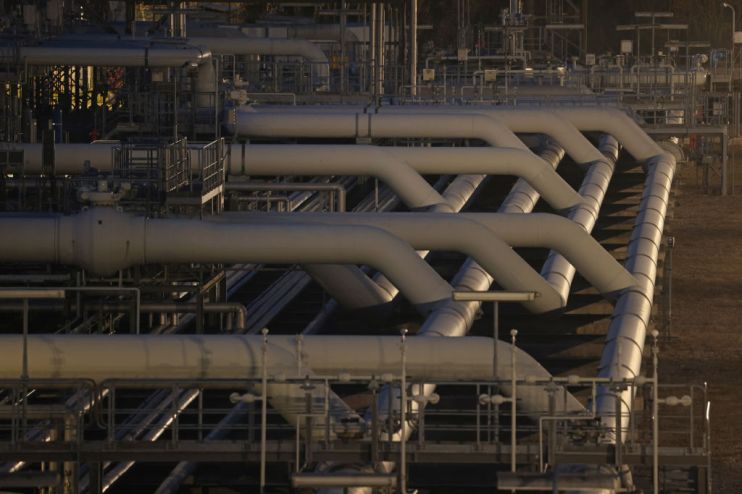Germany brings in more emergency measures to control gas supplies amid supply shortage fears

Germany has brought in new measures to control the country’s energy supply amid continued volatility in global gas markets and Russia’s invasion of Ukraine.
The Bundestag has approved a new version of a bill to secure energy, including the possible expropriation of critical energy infrastructure and assets in the event of an emergency.
The new amendments would enable the government to put energy companies under trusteeship if the security of supply is at risk.
Europe’s biggest economy is looking to guard against the risk of Russia turning off supplies, with Germany dependent on Kremlin-backed energy supplies for over 50 per cent of its gas import.
Russian President Vladimir Putin has signed into law requirements for “unfriendly” overseas buyers to pay for Russian gas in roubles, which resulted in Germany bringing in early-phase emergency gas measures in March.
State-backed gas giant Gazprom has also halted supplies to Poland and Bulgaria, and cut off flows via the Yamal pipeline, which can carry up to 33bn cubic meters of gas from fields in Russia’s Yamal peninsula and western Siberia through Belarus and Poland to Germany.
Media reports from Finland, which has announced its intention to join NATO, suggest Russia could halt its gas supplies to the country too.
Germany’s bill – which still needs to pass the upper house of parliament – could be applied for the first time if no solution is found on the ownership of the Schwedt oil refinery, which is majority-owned by Russian state-owned Rosneft.
Last month, the German government stepped in to sustain operations at Gazprom Germania, the trading, storage and transmission business abandoned by Russia’s Gazprom.
The company was taken into the regulator’s control on as the Economy Ministry sought to stave off a possible acquisition by Russian companies JSC Palmary and Gazprom Export Business Services.
Separately, the European Commission has unveiled €195bn plans to stop importing Russian fossil fuels by 2027, combining a faster rollout of renewable energy and energy savings with a switch to alternative gas supplies.
The draft measures, seen by news agency Reuters, are due to be published next week, and include a mix of EU laws, non-binding schemes, and recommendations national governments could take up.
This includes revising plans to spend the European Union’s (EU) huge COVID-19 recovery fund to free up more funding for the energy transition.
Brussels is considering proposing higher targets for renewable energy and energy efficiency.
Goals under discussion include a target for a 45% share of renewable energy by 2030, replacing the current 40 per cent proposal, and a 13 per cent cut in EU-wide energy consumption by 2030 compared with expected use, replacing the Commission’s current 9% proposal.
It will also outline the potential to increase imports of liquefied natural gas from countries including Egypt, Israel and Nigeria, plus the infrastructure needed to replace Russian gas imports.
The EU is currently considering the prospect of phasing out Russian oil supplies in its sixth package of sanctions following the invasion of Ukraine.